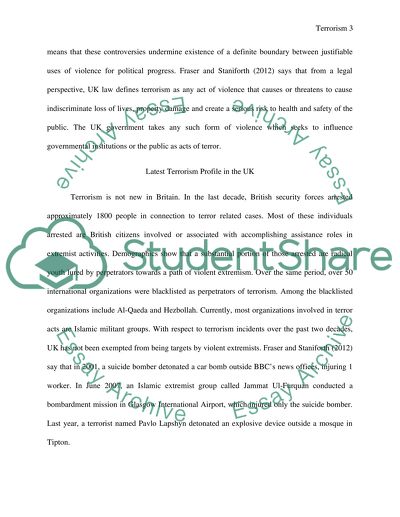Cite this document
(“Government response to terrorism Essay Example | Topics and Well Written Essays - 3250 words”, n.d.)
Retrieved from https://studentshare.org/social-science/1633427-government-response-to-terrorism
Retrieved from https://studentshare.org/social-science/1633427-government-response-to-terrorism
(Government Response to Terrorism Essay Example | Topics and Well Written Essays - 3250 Words)
https://studentshare.org/social-science/1633427-government-response-to-terrorism.
https://studentshare.org/social-science/1633427-government-response-to-terrorism.
“Government Response to Terrorism Essay Example | Topics and Well Written Essays - 3250 Words”, n.d. https://studentshare.org/social-science/1633427-government-response-to-terrorism.


